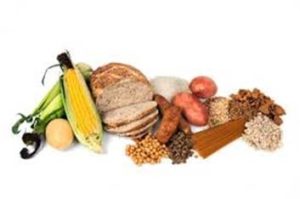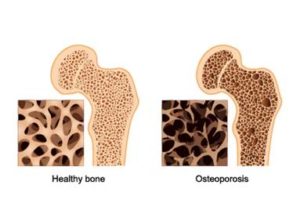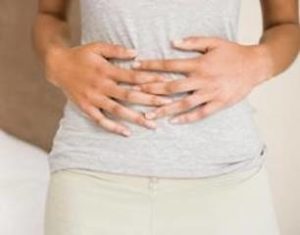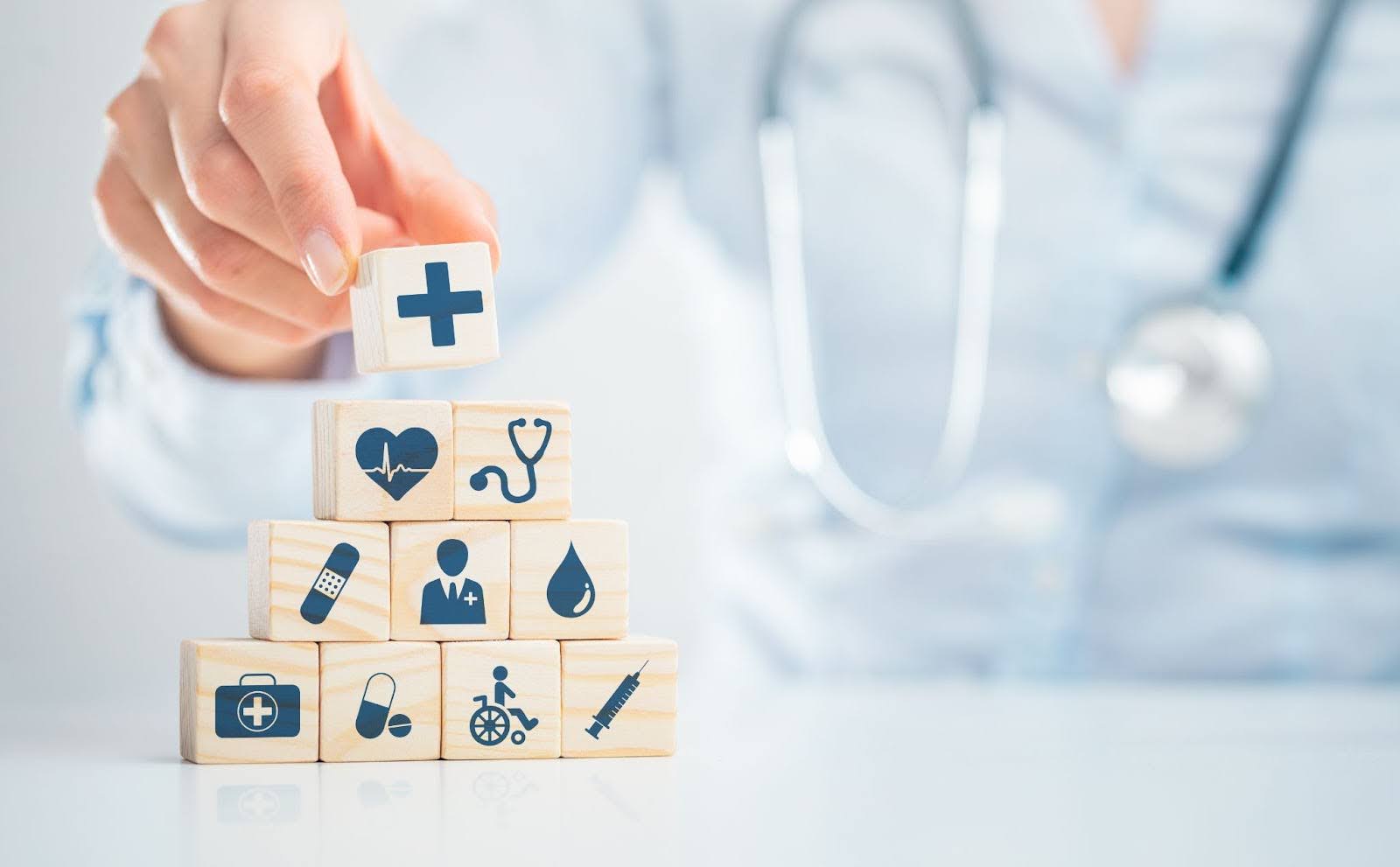
Hey hey fit friends! This month is about menopause and nutrition. Cat and I did a vlog on this topic, but I wanted to dive in deeper so you can have more resources at your fingertips. There is a lot concerning this topic, so here goes!
Weight Gain:
 According to 2003-2004 National Health and Nutrition Examination Survey (NHANES) data, the largest jump in the percentage of women who become overweight or obese occurs between the ages of 20 and 39 (51.7%), and 40 and 59 (68.1%). Research indicates that hormonal changes are largely responsible for the increases in body fat, especially in the midsection. The female hormone estrogen begins to decline during perimenopause, the time during which a woman’s body makes its natural transition to menopause, although erratically, and it decreases further along with progesterone when menstruation ends. Perimenopause usually begins in a woman’s 40s, but can begin as early as the mid-30s, according to the Mayo Clinic website.
According to 2003-2004 National Health and Nutrition Examination Survey (NHANES) data, the largest jump in the percentage of women who become overweight or obese occurs between the ages of 20 and 39 (51.7%), and 40 and 59 (68.1%). Research indicates that hormonal changes are largely responsible for the increases in body fat, especially in the midsection. The female hormone estrogen begins to decline during perimenopause, the time during which a woman’s body makes its natural transition to menopause, although erratically, and it decreases further along with progesterone when menstruation ends. Perimenopause usually begins in a woman’s 40s, but can begin as early as the mid-30s, according to the Mayo Clinic website.
Menopause occurs one year after the last period, typically at age 51. These hormonal changes increase the rate at which women store visceral fat, which surrounds the vital organs deep within the abdomen, and precipitate changes in insulin sensitivity and glucose metabolism, putting them at increased risk of cardiovascular disease and diabetes. Emerging research has revealed that changes at the cellular level cause menopausal women to store more fat with a diminished ability to burn fat. With that being said… there are things you can do to combat this.
Research shows estrogen therapy helps prevent some of these age-related changes; however, it’s no longer recommended for all women because of potential adverse effects, such as an increased breast cancer risk. It’s important for women to talk with their physician openly and honestly about hormone therapy, if this is of interest.
Physical Activity:
 The recommendation is 60min per day, if you wish to not gain more body fat. This is just to maintain! So yes, you actually have a higher recommendation as you get older to stay just as healthy and fit. When you get older, you want to slow down, huh? Well, according to studies, you can’t if you wish to fight the effects of menopause. Also, type of exercise is important. You are required to do at least 3 days per week of resistance training (I would say add at least 4 days per week), mixing up your workouts (think interval training and different machines, etc), and consistency. You can no longer get away with taking off a month or two. Without exercise, stem cells are more likely to become fat cells.
The recommendation is 60min per day, if you wish to not gain more body fat. This is just to maintain! So yes, you actually have a higher recommendation as you get older to stay just as healthy and fit. When you get older, you want to slow down, huh? Well, according to studies, you can’t if you wish to fight the effects of menopause. Also, type of exercise is important. You are required to do at least 3 days per week of resistance training (I would say add at least 4 days per week), mixing up your workouts (think interval training and different machines, etc), and consistency. You can no longer get away with taking off a month or two. Without exercise, stem cells are more likely to become fat cells.
Protein Intake:
 In addition to participating in physical activity to maintain and build muscle, women in midlife also should strive to eat protein during meals to promote muscle-protein synthesis, which is essential to the body’s ongoing growth, repair, and maintenance of skeletal muscle.
In addition to participating in physical activity to maintain and build muscle, women in midlife also should strive to eat protein during meals to promote muscle-protein synthesis, which is essential to the body’s ongoing growth, repair, and maintenance of skeletal muscle.
As much as 20-30g of protein is needed at each meal to optimally stimulate muscle-protein synthesis. For example, in one study, subjects who received 90g of protein, evenly distributed among three meals (30/30/30), experienced a larger anabolic response to the meals after 24 hours, compared with those who received a more uneven distribution (10/20/60). Another study, published in the Journal of the Academy of Nutrition and Dietetics, found that in a single meal, 30g of protein had the same anabolic effect as 90g, showing that after about 30g, protein synthesis is maxed out.
Also, don’t skimp on protein and complex carbohydrates post resistance training (within 45 min).
Carbohydrates:
 In addition to eating sufficient protein and balancing intake across the day, eating the proper amount and type of carbohydrate can help cut calories and control blood sugar. Swap high-glycemic foods, such as frappuccinos and cookies, for those with a lower glycemic index, such as an apple with cheese or peanut butter, since many women approaching menopause have been diagnosed with prediabetes. Also, just a good rule of thumb is make 90% of your grains (cereals, pastas, rice, etc.) “whole” grain. Check the ingredient label to find that magic word “whole.”
In addition to eating sufficient protein and balancing intake across the day, eating the proper amount and type of carbohydrate can help cut calories and control blood sugar. Swap high-glycemic foods, such as frappuccinos and cookies, for those with a lower glycemic index, such as an apple with cheese or peanut butter, since many women approaching menopause have been diagnosed with prediabetes. Also, just a good rule of thumb is make 90% of your grains (cereals, pastas, rice, etc.) “whole” grain. Check the ingredient label to find that magic word “whole.”
Also, watch those “added sugars”! These you will find in the ingredients as well. No more than 50grams/day of added sugars.
Bone Density:
 Calcium, vitamin D, adequate protein, not smoking, and exercise are key components to decreasing the amount of bone loss.
Calcium, vitamin D, adequate protein, not smoking, and exercise are key components to decreasing the amount of bone loss.
After age 50, the Recommended Dietary Allowance (RDA) for calcium climbs to 1,200 mg/day (broken up 3 times throughout the day), which makes meeting calcium needs challenging, especially since calcium supplements now are recommended less often because of potential heart disease risks.
Vitamin D supplementation should be based on an individual patient’s blood levels. Please check with your doctor first before starting supplementation. Also, don’t have iron supplements with Calcium, because they compete for absorption.
Sleep:
 Sleep loss interrupts appetite regulation by elevating levels of the hunger hormone ghrelin, and decreasing the satiety hormone leptin, which can raise the risk of weight gain. Refrain from drinking caffeinated beverages four to six hours before bedtime, alcohol within three hours of bedtime, practicing a regular sleep routine, eating a light evening meal, exercising early in the day or at least three hours before bedtime, and going to bed only when tired.
Sleep loss interrupts appetite regulation by elevating levels of the hunger hormone ghrelin, and decreasing the satiety hormone leptin, which can raise the risk of weight gain. Refrain from drinking caffeinated beverages four to six hours before bedtime, alcohol within three hours of bedtime, practicing a regular sleep routine, eating a light evening meal, exercising early in the day or at least three hours before bedtime, and going to bed only when tired.
Gastrointestinal Changes
 Other issues that women in midlife may face include changes in digestion. Fluctuations in ovarian hormones may contribute to belly bloating and sluggish intestines. The same gastrointestinal (GI) symptoms that occur during pregnancy, premenses, and menses—bowel discomfort, abdominal pain, bloating, and altered bowel patterns—also occur during perimenopause and menopause. Researchers believe it’s the fluctuations in ovarian hormones that contribute to GI distress.
Other issues that women in midlife may face include changes in digestion. Fluctuations in ovarian hormones may contribute to belly bloating and sluggish intestines. The same gastrointestinal (GI) symptoms that occur during pregnancy, premenses, and menses—bowel discomfort, abdominal pain, bloating, and altered bowel patterns—also occur during perimenopause and menopause. Researchers believe it’s the fluctuations in ovarian hormones that contribute to GI distress.
Follow a low-lactose diet if gas and bloating are related to milk consumption. Drink six to eight 8-oz glasses of water daily, and eat adequate amounts of fiber (approximately 25 g/day) that are less gassy, such as chia seeds, pumpkin seeds, strawberries, and baked potatoes with the skin on vs. choosing inulin or whole wheat fibers, which can cause more GI distress. Taking a probiotic daily, such as Align, can help as well. And guess what?! Exercise increases gut motility, so do this every day if you can.
Lots more on this topic, but I thought I would hit the main points. Please don’t give up on yourself if you feel unhappy with your symptoms. You CAN still have a fit and rockin bod. Keep trying to help yourself, and always consult with a physician before changing up anything.
Toodles!
Miriam Turner
Studio SWEAT Dietitian
Resources: Today’s Dietitian, Mayo Clinic, and Harvard Medical









Comments - 0